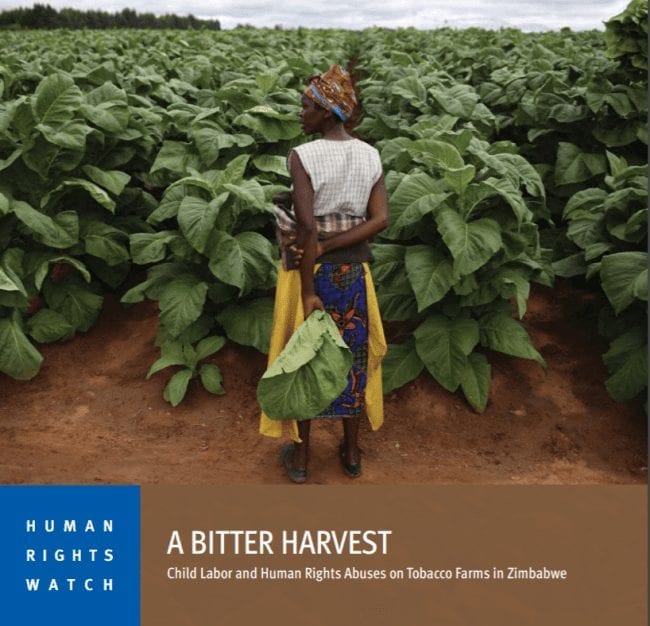
Bitter Harvest: Child Labor and Human Rights Abuses on Tobacco Farms in Zimbabwe
This report—based on extensive field research and interviews with 64 small-scale tobacco farmers like Panashe, as well as 61 hired workers on tobacco farms in the largest tobaccogrowing provinces in Zimbabwe—found several serious human rights problems in the tobacco sector. Many children under 18 work in hazardous conditions on tobacco farms in Zimbabwe, often performing tasks that threaten their health and safety or interfere with their education. Adults involved in tobacco production—both small-scale farmers and hired workers—face serious health and safety risks, but the government and tobacco companies are failing to ensure that workers have sufficient information, training, and equipment to protect themselves. Hired workers on some large-scale tobacco farms said they were pushed to work excessive hours without overtime compensation, denied their wages, and forced to go weeks or months without pay.
Zimbabwe is among the top tobacco producers in the world. Tobacco production is central to the country’s economy, and tens of thousands of small-scale farmers, and thousands of hired workers on tobacco farms, rely on tobacco cultivation for their livelihoods. Yet, the government of Zimbabwe is failing to meet its international human rights obligations to protect children’s rights and is also failing to tackle other workers’ rights abuses in the tobacco sector. As President Mnangagwa’s administration strives to promote Zimbabwe’s economic growth, authorities should address human abuses faced by the small-scale farmers and hired workers sustaining the tobacco industry.
